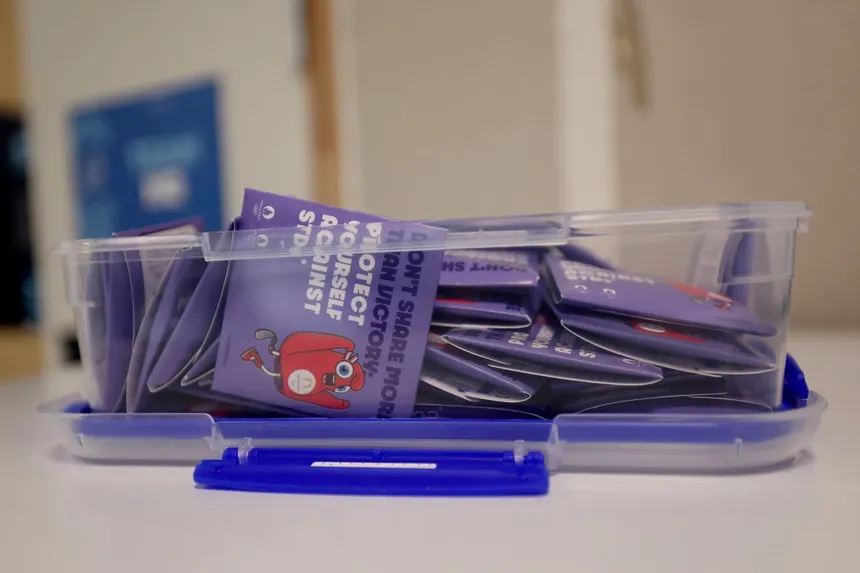Chicago, April 01, 2024 (GLOBE NEWSWIRE) — The PLGA Market size is projected to reach USD 321 million by 2030, at a CAGR of 16.6% from USD 125 million in 2024, as per the recent study by MarketsandMarkets™. The stringent government regulations, coupled with exceptional biodegradability and biocompatibility nature, will contribute to the rapid growth in the demand for PLGA.
Download PDF Brochure: https://www.marketsandmarkets.com/pdfdownloadNew.asp?id=143024577
Browse in-depth TOC on “PLGA Market”.
180 – Market Data Tables
110 – Figures
260 – Pages
List of Key Players in PLGA Market:
- Evonik (Germany)
- Corbion NV (Netherlands)
- Ashland (US)
- Mitsui Chemicals (Japan)
- Jinan Digang Bioengineering Co., Ltd. (China)
- Merck (Germany)
- Akina, Inc. (US)
- Nomisma Healthcare Pvt. Ltd. (India)
- Bezwada Biomedical, LLC (US)
- CD Bioparticles (US)
Drivers, Opportunities and Challenges in PLGA Market:
- Drivers: Government initiatives and regulations.
- Restraint: Complex manufacturing process
- Opportunity: Global expansion in healthcare industry
- Challenge: Cost intensive process and scalability problem
Key Findings of the Study:
- Injection molding is projected to be the fastest growing processibility type of PLGA, in terms of value, during the forecast period
- Packaging is the fastest growing end-use industry of the PLGA, in terms of value
- North America captures the largest share in the PLGA market during the forecast period, in terms of value
Get Sample Pages: https://www.marketsandmarkets.com/requestsampleNew.asp?id=143024577
Based on application type, the PLGA market has been segmented into medical application and non-medical applications. In the medical field, PLGA is highly valued for its biodegradable and biocompatible properties, making it ideal for drug delivery systems, tissue engineering, and medical implants. Its ability to degrade into harmless byproducts within the body, along with its adjustable degradation rate, allows for controlled release of drugs over time, enhancing therapeutic efficacy and patient compliance. Moreover, PLGA can be tailored to encapsulate a wide range of drugs, including small molecules, proteins, and nucleic acids, facilitating precise delivery to targeted sites. Beyond medicine, PLGA’s versatility extends into non-medical domains such as cosmetics, food packaging, and agriculture. Its biodegradability and mechanical properties make it a preferred choice for sustainable packaging solutions, ensuring minimal environmental impact. Additionally, PLGA’s compatibility with active ingredients makes it suitable for encapsulating fragrances, vitamins, and nutrients in cosmetic formulations, enhancing stability and efficacy. In agriculture, PLGA-based formulations can aid in controlled release of fertilizers and pesticides, optimizing nutrient uptake and minimizing environmental contamination.
Based on end-use industry, the PLGA market has been segmented into healthcare, biotech firms, medical institutions, packaging, textile, agriculture, and others. In the healthcare sector, PLGA’s biocompatibility and biodegradability make it an invaluable resource for drug delivery systems, tissue engineering, and medical implants. Biotech firms leverage PLGA’s capabilities to develop advanced pharmaceutical formulations with controlled release properties, enhancing drug efficacy and patient outcomes. Medical institutions rely on PLGA to produce implants and devices, facilitating minimally invasive procedures and promoting patient well-being. In packaging, PLGA emerges as a sustainable solution, aligning with the growing demand for eco-friendly materials. Its biodegradability ensures minimal environmental impact, making it an ideal choice for sustainable packaging solutions in various industries. Similarly, in textiles, PLGA’s biodegradable nature offers opportunities for the development of environmentally friendly fabrics and fibers, catering to the increasing consumer preference for sustainable products.
Get Customization on this Report: https://www.marketsandmarkets.com/requestCustomizationNew.asp?id=143024577
Asia Pacific is the fastest-growing market for PLGA. This growth is mainly attributed to the rising healthcare expenditure and increasing demand for advanced medical treatments in countries like China, India, and Japan are driving the adoption of PLGA-based drug delivery systems and medical implants. Additionally, the growing focus on research and development activities in Asia Pacific, coupled with advancements in polymer science and technology, is fostering innovation in PLGA-based products. Academic institutions, research laboratories, and pharmaceutical companies are actively investing in developing novel drug delivery systems and formulations using PLGA, thereby expanding the market opportunities.
Evonik
Evonik is one of the global leading specialty chemical companies. The company operates under 6 divisions: Specialty additives, Nutrition & Care, Smart Materials, Performance Materials, Technology & Infrastructure, Enabling Functions, and Others. It offers polylactic co-glycolic acid (PLGA) under the specialty nutrition & care segment. The company manufactures PLGA under the brand names “Lactel” and “Resomer”. These brands have strong records for safety and timely delivery of complex parenteral drug products. The biodegradable polymers offered by Evonik are available with either acid or esters end groups. The company serves its products to various end-use industries such as paint & coatings, agriculture, construction, plastics, rubber, pharmaceuticals, paper & printing, electrical & electronics, consumer & personal care products, and many others. The company has a global presence, operates in more than 100 countries, and 84% of sales are generated outside Germany. The production capacities are in Germany, Belgium, the USA, China, and Singapore.
Browse Adjacent Markets: Green Bio Chemicals Market Research Reports & Consulting
Related Reports:






